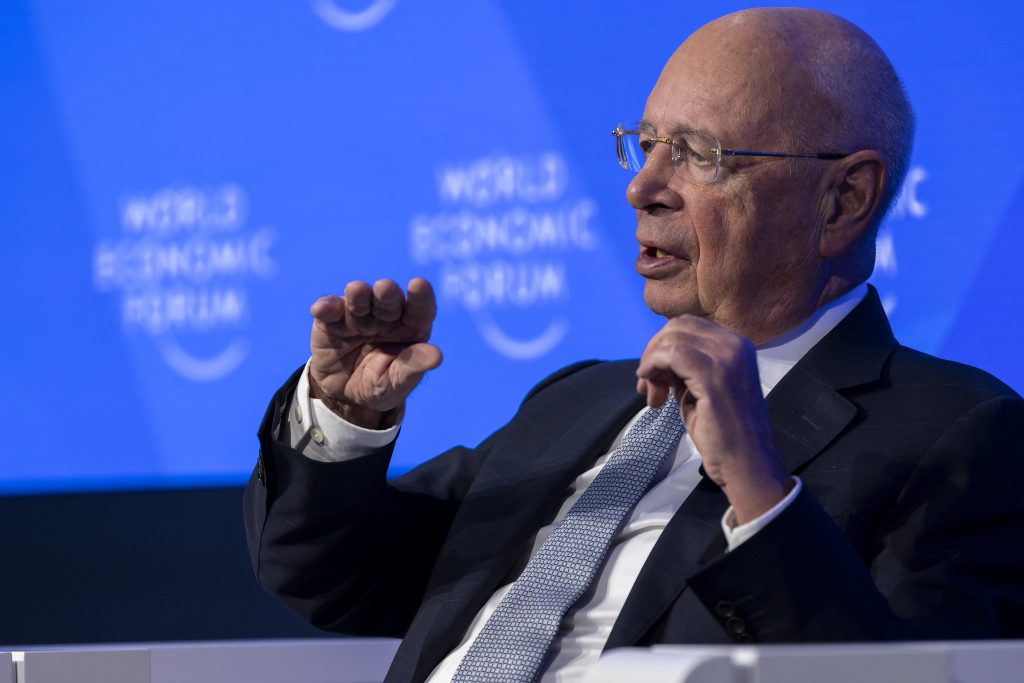
Klaus Schwab, Founder and Executive Chairman of the World Economic Forum, speaks with Satya Nadella, CEO of Microsoft in a session at the WEF Annual Meeting 2023 in Davos-Klosters, Switzerland. (Source: World Economic Forum/Faruk Pinjo© via Flickr.com)
World Economic Forum: Nearly 40% of Global Jobs Could Be Disrupted by AI
The International Monetary Fund (IMF) has warned that nearly 40% of jobs globally could be disrupted by the rise of AI, a trend that could exacerbate inequality, according to a story on cnn.com.
IMF Chief Kristalina Georgieva urged governments to establish social safety nets and offer retraining programs to mitigate the impact of AI. She cautioned that AI would likely worsen overall inequality, a trend that policymakers must proactively address to prevent the technology from stoking social tensions further.
The comments were made ahead of the World Economic Forum (WEF) in Davos, Switzerland, where AI was a key topic of discussion. OpenAI CEO Sam Altman and Microsoft CEO Satya Nadella were among the key speakers at the event. Georgieva pointed out that while AI could help businesses and workers, it could also harm the human workforce.
The effects of AI are expected to be more profound in advanced economies than in emerging markets, primarily because white-collar workers are viewed as more at risk than manual laborers. In more developed economies, as much as 60% of jobs could be impacted by AI, with about half potentially benefiting from AI-driven productivity increases. However, AI applications may perform key tasks currently done by humans, reducing labor demand, lowering wages, and leading to fewer hires. In the worst-case scenarios, some jobs may disappear entirely.
In emerging markets and low-income nations, 40% and 26% of jobs, respectively, are expected to be affected by AI. These countries often lack the infrastructure or skilled workforces needed to harness the benefits of AI, increasing the risk of technology-induced inequality over time. Georgieva warned that AI could spark social unrest, especially if younger, less experienced workers leverage the technology to boost their output while more senior workers struggle to keep pace.
Despite these concerns, the widespread adoption of AI could increase labor productivity and boost global GDP by 7% annually over a decade, according to Goldman Sachs economists. Georgieva also highlighted the opportunities to boost output and incomes globally through AI, affirming that AI will transform the global economy and must be ensured to benefit humanity.
read more at cnn.com







Leave A Comment